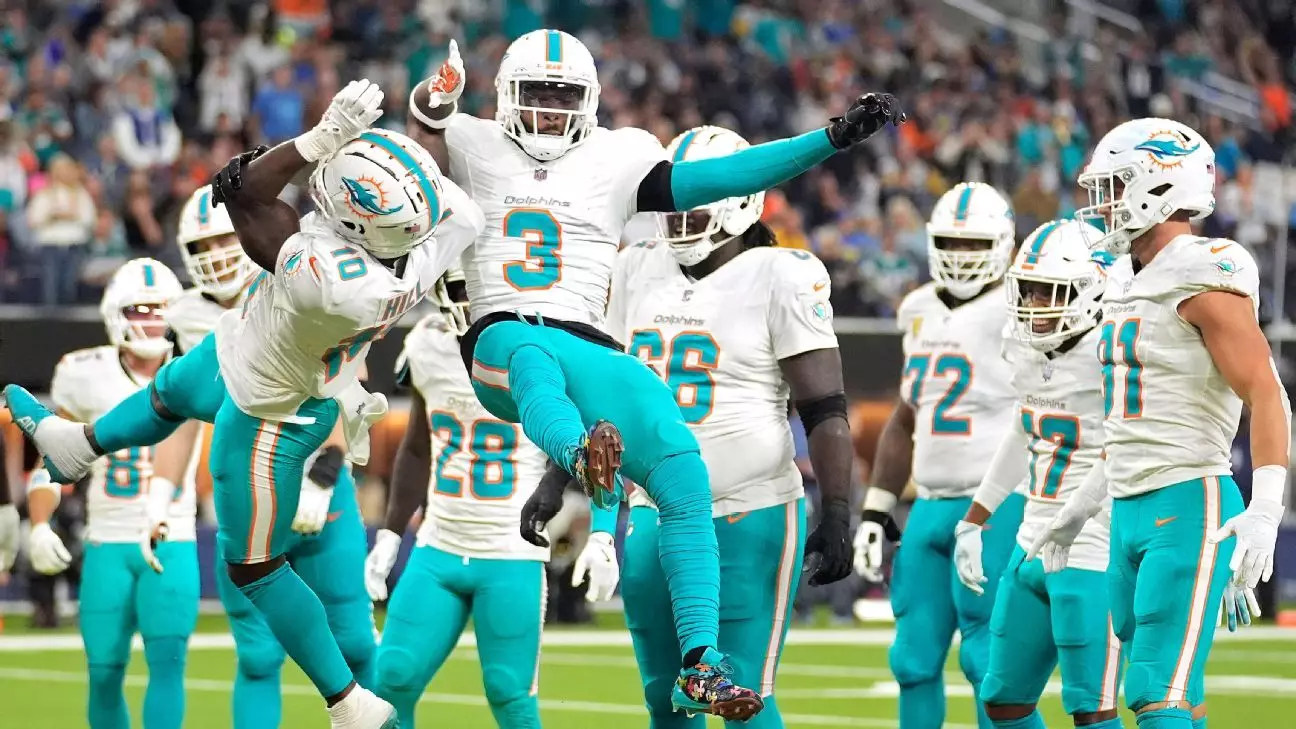The Miami Dolphins’ recent decision to part ways with wide receiver Odell Beckham Jr. marks the end of an eventful yet disappointing stint for the star player. Released just weeks shy of the regular season’s conclusion, this mutual parting of ways underscores the challenges both the team and Beckham faced throughout the season. The announcement followed a series of absences from practice, attributed to “personal reasons,” leading many to question the efficacy of the partnership from the very start.
When the Dolphins signed Beckham to a one-year, $3 million deal in May—potentially $8.25 million with incentives—hopes were high for him to contribute significantly to an already talented receiving corps featuring Tyreek Hill and Jaylen Waddle. However, reality soon set in. Beckham underwent knee surgery before the season commenced, placing him on the physically unable to perform list. The Dolphins’ awareness of his recovery time didn’t deter them from the signing, but it ultimately set a tone of unmet expectations that would haunt the team throughout the year.
His eventual return to practice in October and first game appearance in Week 5 against the New England Patriots did little to alleviate concerns. With merely nine receptions for a total of 55 yards in his nine games, Beckham failed to integrate effectively into the team’s offensive scheme. Instead, tight end Jonnu Smith unexpectedly emerged as the passing game’s third option, further diminishing Beckham’s anticipated role. This shift not only strained Beckham’s position but also highlighted the Dolphins’ struggles to capitalize on their offensive potential.
The release of Beckham can be viewed as a metaphor for the Dolphins’ turbulent season. Starting with a disappointing 2-6 record, the team faced an uphill battle compounded by quarterback Tua Tagovailoa’s absence in four games due to concussion protocols. Despite a resurgence with four wins in the past five games, the Dolphins—now at 6-7—find themselves in dire need of outside assistance to secure a playoff berth for the third consecutive year.
The Dolphins’ current predicament not only reflects on Beckham’s inability to meet expectations but also exposes broader issues within the organization—from injuries to inconsistent performance. The fantasy of having a player of Beckham’s caliber providing depth was quickly overshadowed by the reality of a squad still searching for its identity.
As the season inches towards its conclusion, the Dolphins must pivot and reassess their strategy. They need to build cohesively around standout players while fostering an environment conducive to injury recovery and performance enhancement. The departure of Beckham, while disappointing, can serve as a catalyst for change—urging Miami to explore new avenues for improving their roster and addressing key vulnerabilities ahead of the next season. For now, the Dolphins are left to navigate the challenges of a competitive league and find the right mix to elevate their aspirations in the foreseeable future.


Leave a Reply